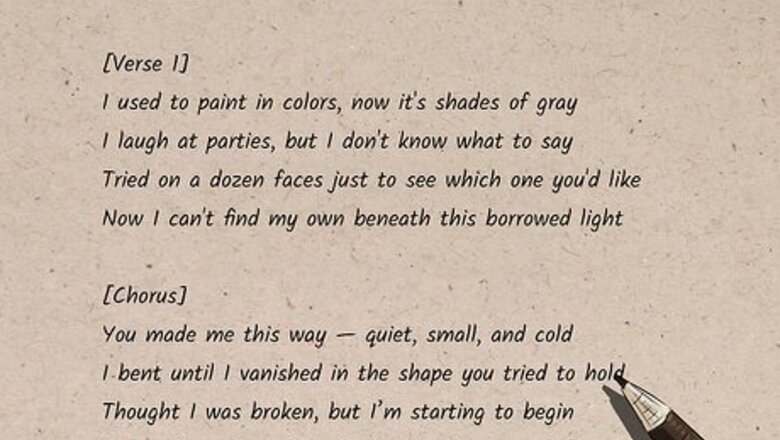
views
Tell a story with your lyrics.
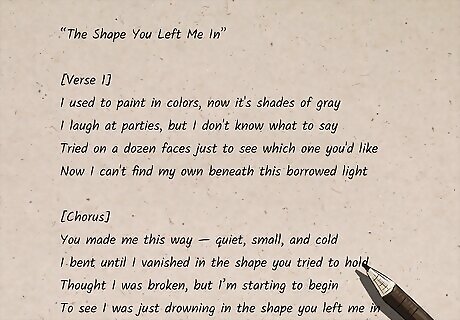
This is an important strategy because your chorus should feel like it’s encapsulating the meaning of your song, and a story arc helps you figure out what that meaning is. I often like to view the chorus as a punch line to the first verse, or imagine the camera pulling back in a movie, so you can see more of the scene all of a sudden. Throughout each section of the song, you’ll build the story and give the listener more context and information, so your chorus is meaningful again the next time it comes around. For example, I was recently working with a singer on a song about being treated poorly by others. This is a pretty simple idea, but it can still be turned into a complete story. The first verse could be about how the singer can’t be the person they want to be because they’re too distracted and upset. Then the chorus can be sung directly to the person responsible, saying, “Well, you made me this way.” Now that there’s a thesis statement for the chorus, verse two can set up more of the story, so that “you made me this way” has a new and fresh meaning when it comes around again. For a bridge, the goal is to change the perspective or go back and set up a different part of the story, so that there’s a new punchline once again when the song returns to the chorus.
Look for inspiration everywhere.
Some people look at visual elements for inspiration, others listen to reference songs they want to emulate, and some people have a kind of meditative practice, where they pick notes to communicate an emotion they’re feeling. Ultimately, inspiration is a really personal thing that’s going to change from songwriter to songwriter, so don’t be afraid to look for it in unexpected places. One of my favorite songwriting tidbits I’ve ever heard is that Timbaland likes to go outside throughout his day and just listen to the sounds around him. If he hears a car make a cool noise, he'll think about that noise and try to make a song in his head based on it. Inspiration can truly be anywhere!
Write as much as possible.

The songwriters I’ve seen achieve the most success write all the time. The logic behind this is pretty simple—you might have to go through a few duds before you strike gold, and the more you write, the more chances you have to come up with a masterpiece. Practice also makes perfect, so it’s a good idea to write as much as you can to really hone your skills.
Think of the songwriting process as a series of choices.
Songs don’t flow out of songwriters in one fully-formed chunk. Every time you listen to a great song, you’re experiencing a collection of choices that people made before it got to you. When you’re writing, try to remember this and think of every detail as a choice you’re making. Some of these choices might be quick and efficient, and others might be things that you agonize over, but it’s important to accept them as you go.
Imagine that you’re writing a song for your favorite artist.
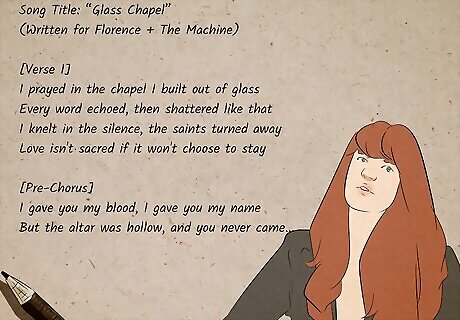
Start by picking a band or musician that you really admire, then imagine you’re writing a song that’s going to become your new favorite by them. How would this song start? How would the audience react to it being performed on stage? What would the chorus be? This exercise can be really entertaining, and it also gets your creative juices flowing.
Visualize the performer singing your song.
This is one thing I consistently see experts doing while writing—they're basically trying to create the performance they would want to see live. What does it sound like? What does it feel like? How does it make you want to move? When you see the performer singing in your mind’s eye, what does their face look like? What emotion are they conveying? These types of questions can be an awesome guide for writing a good song. Once they've worked with an artist a lot of times, some songwriters have a little version of that artist in their head, and they think about how that artist would want to say things. It's kind of like writing dialogue for a TV show. Of course, you can still do this exercise if you’re writing the song for yourself. Just visualize yourself performing on stage, and use this scene as inspiration.
Try rearranging a song you love.
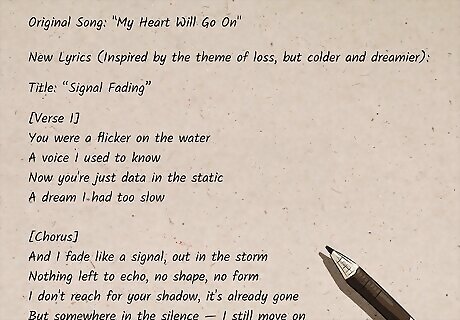
When you’re feeling uninspired, just take a song you’re familiar with and try to completely rearrange and revamp it. Give it new chords and new melodies, and see if you can make a version that feels completely new and exciting. If you come up with something you love, all you need to do is change the lyrics, and then you have your own song!
Write from personal experience (when you can).
When you’re drawing from your real life, you’ll probably be able to dig into the emotions and nuances more deeply. However, if you don’t have a specific personal experience to write about, it’s completely okay to look for inspiration elsewhere. I’m in a band right now that’s super successful because we write songs about horror movies, and there are also plenty of great songs that were inspired by TV show characters or things like that. There isn’t just one right approach! The most important thing is being able to convey an emotion truthfully. Most successful songwriters are able to hold and feel a specific emotion while they’re writing, and this helps them compose songs that really connect with people.
Draw inspiration from other artists.
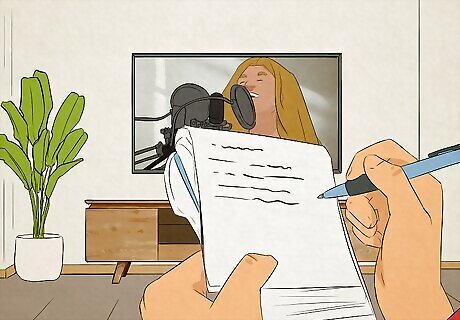
If you’re writing a song in one key (which is the case for a lot of popular music), this basically means that you’re trying to find a creative way to use only seven notes. People are always finding new and interesting ways of doing things, but it’s helpful to remind yourself that you only have a finite number of options, and there are millions of songs out there. Musicians are always drawing inspiration from each other’s work, and a certain amount of similarity is pretty much unavoidable! If you’re in the process of creating something that you think has absolutely never been heard before, there’s probably a really good reason why it’s never been heard before—it might not be listenable. A lot of musicians—myself included—might recoil from a melody that seems too derivative, simple, or not “hip.” When this happens, the melody isn’t usually the problem. It’s more often a reaction to the fact that there's no inspiring lyric to support it. Being able to recognize and troubleshoot something like that is a big part of the gig.
Start the song wherever you’d like.
A song can start with a chord progression, a drum beat, a melody, a lyric—whatever feels natural to you. True, the quickest and easiest method is often to start with a chord progression, so that you have music to write lyrics to. However, some songwriters prefer starting with an inspiring lyric, and some even begin with a rhythmic element or drum beat to write lyrics over. There’s really not a one-size-fits-all solution! If you do start with a chord progression, you’ll be arranging three types of chords—tonic, subdominant, and dominant—in a repeating pattern. First, you’ll need to determine your tonic chord, which is the root note of the key you’re in (if you’re in C major, your tonic chord is C major; if you’re in A minor, your tonic chord is A minor, etc). Next, you’ll write a series of chords that end up back at your tonic chord. Subdominant leads to dominant, and dominant leads back to tonic. Typically, it's pretty easy to put a progression together because you can just work your way through by starting with the tonic chord, following it up with subdominant chords, ending with the dominant chord, and then going back to your tonic.
Create tension and release in chord progressions.
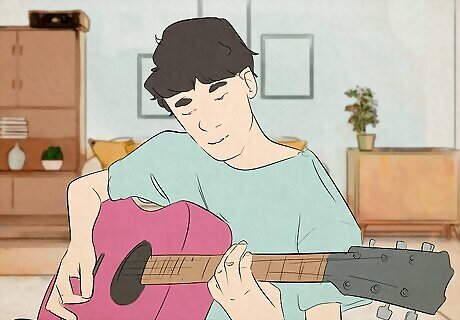
Some chords build tension, and others release tension. A good chord progression balances these elements effectively and gives the listener the right amount of each. Think of it this way: if there’s absolutely no tension in the plot of a movie or TV show, you have something that’s boring and not worth watching. On the flip side, if you have nothing but tension, you have something that’s too stressful to pay attention to. The same logic goes for chord progressions.
Try scatting or babbling to come up with a melody.
A lot of producers will loop a section of music and just let a singer babble and improvise into the microphone. This may sound silly at first, but if you sing total nonsense noises and words for a while, you’ll eventually land on something that sounds very musical. And this little musical snippet can often be the first spark of inspiration that helps you come up with your vocal melody! If you’re having trouble writing a melody, it’s helpful to figure out your “entry point” (the first note of your vocal melody). Most of the time, the entry point will be something called a chord tone. For example, say that I’m trying to start a vocal melody while playing a C major chord. C, E, and G would be the chord tones, and the rest of the notes in the scale are non-chord tones. Depending on the singer's voice and range, there's a good chance that the starting note for your vocal melody should be either C, E, or G.
Use a place-holder melody if you’re stuck.
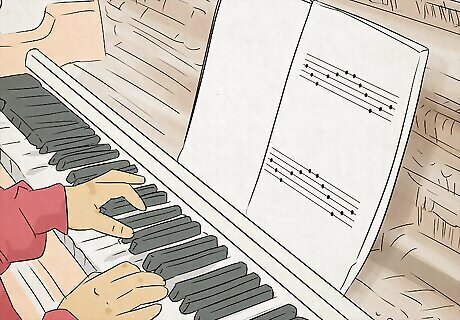
If you’re struggling to come up with a melody, just pick the root note (C if your song is in C major, for example) and sing that note over and over again, kind of like chanting. This allows you to write the lyrics and rhythmic patterns of the vocals without having your actual melody, which you can come back to later. I’ve used this technique before, and it’s been really helpful.
Meditate if you feel uninspired.
When I feel uninspired, I like to meditate and clear out my ego as much as possible. I’ll just sit down, get into a meditative headspace, and start playing my guitar freely. At some point, I’ll play something that makes me feel inspired, then I record that on my computer and loop it, so it plays over and over again. From there, I’ll generally record more guitar or piano parts until my brain does something called audiating, which is basically thinking that you hear a voice singing over the music (even though there isn’t one). This is a great starting point for composing vocals. You just need to listen to the looping music in a kind of passive way, and eventually your brain will start hearing things that sound like voices. Your brain is always looking for patterns and trying to hear sounds around you, so it happens pretty naturally. Meditation can be a super helpful tool in this process, since it’s all about being aware of your sensations and surroundings in the present moment.
Take a break from a song and come back to it later.

There’s wisdom in getting an idea finished in one go, but there’s also wisdom in knowing when it’s time to take a break from one project and work on something else. You won’t always be able to get a whole song done in one session, and if you’re feeling uninspired, it might be more productive to switch things up. Just make sure you record and save all your unfinished chunks, so you can come back to them later! My songs are always in a state of flux because I’m constantly jumping back and forth between different bands that I’m working with. At one point, a band I was in had 60 unfinished songs in a folder. With the right amount of time or attention, any of those songs could have become something great, but it’s all about prioritizing your top ideas.
Let go of perfectionism to beat writer’s block.
Songwriters often get disappointed in themselves when something doesn’t live up to their expectations, and they also feel pressured to write things that go against their natural inclinations. These mindsets can easily paralyze your creative process and keep you stuck. If you want to get things flowing again, let go of the pressure to create something perfect. Instead, focus on reconnecting with the parts of songwriting that you love, and make that feeling the bedrock of your next creation.
Give yourself permission to write bad songs.

Challenge yourself to write the worst song you can imagine to get ideas flowing, have fun, and totally reverse your expectations of yourself. This exercise helps you get familiar with song structure in a low-pressure way, and who knows, once all your “bad” ideas are cleared out, you may start getting to some genius ideas that are buried underneath!
Don’t be discouraged if you can’t play an instrument.
Although it’s helpful for a songwriter to play an instrument, it isn’t essential. It’s true that the most efficient way of writing a song is usually for a songwriter to play their instrument and sing at the same time, but there are plenty of talented songwriters who became successful with only a pen and a piece of paper. If you can visualize and imagine the song you want to write in your head, that’s all you need! In fact, I once heard that the songwriter who wrote the song “I Hope You Dance” broke her hand in college on her way to her first songwriting session, which hindered her ability to play her guitar. She thought this would negatively affect her, but it actually helped her become a better songwriter because she had to sit and think about songs from a much more practical standpoint. The bottom line? Learning an instrument can be helpful for your craft, but if that’s not in the cards for you, don’t let it discourage you from songwriting. You can still sit down and create something amazing!
Explore music theory if it aligns with your goals.

Knowledge of music theory is helpful sometimes, but it isn’t always necessary. Music theory gives you a helpful set of guidelines, but many of the songs that have completely dominated our culture were made by people who didn't know the first thing about music theory. As a result, I’d say a knowledge of music theory definitely isn’t a requirement for a songwriter, but this does depend on your personal goals and situation. For example, as a member of Ice Nine Kills, I play a lot of classical pieces while also singing tons of different types of vocals, so in my case, it was totally essential to learn music theory. For others, however, music theory might seem really convoluted or stifling. Some people even show up to the world naturally knowing certain elements of music theory, so they’re able to compose things that sound great without intentionally studying it. It’s all about figuring out you’re own goals and needs, so you can decide how helpful it would be to study up on music theory in your specific case.
Collaborate with other musicians.
I’ve personally found that collaboration is totally necessary for my creative process, and I think all songwriters would benefit from it. If you’re looking for musicians to work with, the internet is a great resource—creative people are finding each other on sites like Reddit and Discord all the time. I’ve also met a lot of my collaborators at shows, so don’t be afraid to strike up conversations and network when you find yourself in a place with lots of other musicians.
Make a portfolio of your songs to show collaborators.

It’s really helpful to have a collection of your work on hand, so you’ll be able to show it to potential collaborators and say, “Hey, we should work together sometime. Here’s some of my music.” Don’t worry about making your portfolio all-encompassing or perfect—I’m in my 30s, and I’m still establishing a portfolio of new music to show people to hopefully pique their interest in working with me!
Ask for others’ opinions to improve your songs.
Being receptive and non-defensive to feedback is a must for songwriters. Accept that the feedback is about the song, and not about you as an individual, so you can implement it and make your song even better. This open, receptive attitude is pretty much a mandatory thing that every single songwriter must embrace before they try to collaborate and exchange ideas with other musicians. If you’re having trouble accepting criticism, try to reframe the situation. The fact that somebody would take the time to give you honest feedback is actually something to be thankful for, rather than offended by. It’s easier for someone to just say, “Oh, this sounds really good,” and walk away—it’s a lot harder to put in the time and effort and provide thoughtful, nuanced criticism. This means they care about helping you make the best song possible!
Finish your song when it feels done, not perfect.

There’s no such thing as a “perfect” song. At a certain point, the song you’re writing will be as finished as it’s ever going to be, even if it isn’t completely flawless. To determine this, ask yourself if you know what your melody, lyrics, chord structure, rhythm, and vibe are. If you can successfully answer all of these questions and you don’t hear any glaring mistakes or issues that need to be resolved, there’s a good chance it’s simply time to finish up.
Don’t be too harsh on yourself.
Being creative requires vulnerability, and not every song will be a winner. If you get negative feedback from others (or even if you just personally don’t like a song you wrote), don’t let this discourage you! Shake it off and try again. Every great artist has written a bad song in the past—it’s all part of the journey to writing good ones.
Remember to have fun.
If you’re enjoying yourself, your listeners will be able to hear it. Songwriting shouldn’t feel super stressful, academic, or boring. It’s definitely difficult, but the process should also be full of passion, excitement, and yes, fun. If you’re feeling these emotions when you write, they’ll definitely shine through in your song.


















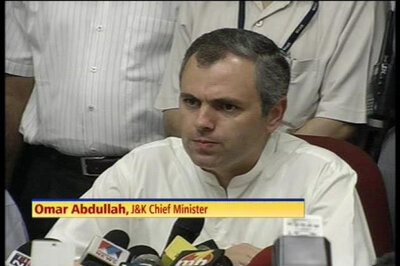

Comments
0 comment